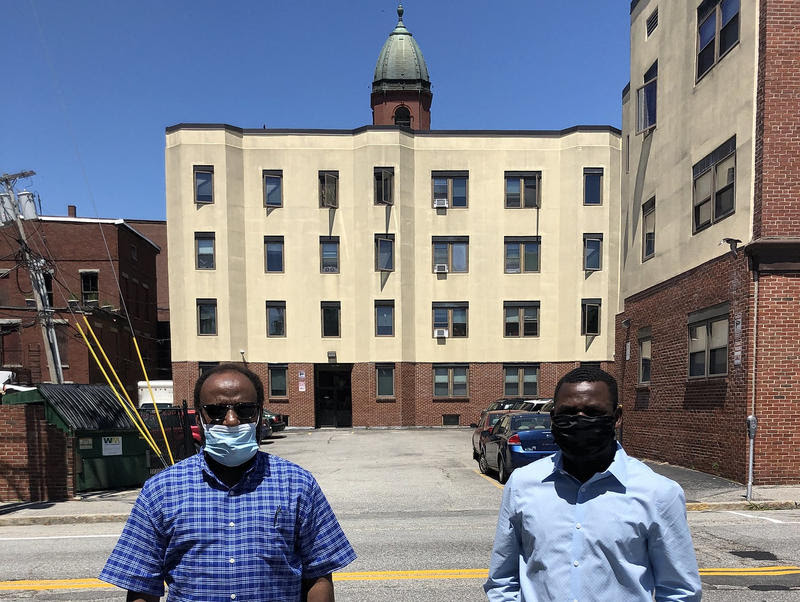COVID-19 Issue Spotlight: Health Equity

In the midst of a global pandemic, we need an equitable healthcare system now more than ever. The reality is that thousands of Mainers are not able to access the health services that they need. Our grantees are working hard to fill in the gaps while calling for transformational change. While on some level all of our grantees are addressing health inequities in this moment, below you’ll read about three organizations in particular that are occupying unique roles in the public health sphere. Their community-based work is not only providing folks with critical resources and services, but it also positions them as powerful advocates on behalf of those most impacted by this crisis. Prioritizing New Mainers in Public Health ResponseNew Mainers Public Health Initiative
NMPHI has played a critical role in establishing a local emergency task force in Lewiston to address these challenges and more. Since March, their coordinated efforts have been providing groceries and medications to the elderly, assisting with housing relief applications, supporting families with childcare providers, bridging the gaps between schools and families facing technology and language barriers, and supporting immigrant farmers with PPE. On a systemic level, they’ve been managing issues with contact tracing, as there is a lack of trust and language barriers between community members and public health officials. They are calling for more collaboration from the state Center for Disease Control (CDC) to train members of the New Mainer community as contact tracers and establish door-to-door mobile testing to identify more cases. Maine Access Immigrant NetworkSince March, Maine Access Immigrant Network (MAIN) has been providing urgent COVID response services to Immigrant communities while simultaneously playing a an active advocacy role. This has included multilingual public health video messaging and translations of Executive Orders to keep community members informed. They’ve also been providing food and critical supplies throughout Cumberland County, distributing over 2,000 masks. They continue to conduct wrap around case management including regular check-in calls with clients, scheduling and accompanying clients throughout various appointments to provide interpretation and support, assistance with health insurance enrollment, and supporting needs relating to housing. MAIN serves the community as a trusted resource for information, answering calls 24 hours a day to ensure that community members are connected to the resources they need. This deep knowledge of the community positions MAIN as an important voice when addressing the racial disparities among COVID-19 cases in Maine. Sarah Lewis of MAIN shares that the organization “has remained vigilant in efforts at the local and state level advocating for, and providing solutions to the issue of systemic racism, the need for universal health care during this pandemic, and federal funding to be directed to the communities in Maine experiencing the highest rates of COVID-19 infection. MAIN has and continues to advocate for such funding to be disseminated to organizations trusted by and accountable to the communities that they serve from county-level district public health councils to the Governor’s office.” The Fight for Universal HealthcareSouthern Maine Workers’ CenterSince 2013, Southern Maine Workers’ Center (SMWC) has been committed to building the collective power of working-class and low-income people to demand a universal healthcare system in Maine. This work has only become more critical in the midst of a global pandemic, where many Americans are uninsured or underinsured. On May 7th the Southern Maine Workers’ Center made a symbolic delivery of a letter to Gov. Mills calling on her to take action and provide more people with health care coverage during the COVID-19 crisis. The letter reads, “We believe healthcare is a human right. With the spread of COVID-19, we will all not be safe unless we remove all economic barriers to healthcare and create a universally accessible system that provides screenings, testing, and treatments without cost.” The letter has been signed by thirty organizations around the state that represent organized labor, immigrant communities, LGBTQ+ people, and Black, Indeginous, and other People of Color. What You Can Do |
